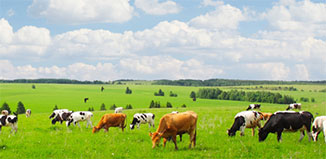 Dairy farmers need to know they can ask for help to deal with stress and depression, says Lisa, a Waikato sharemilker.
Dairy farmers need to know they can ask for help to deal with stress and depression, says Lisa, a Waikato sharemilker.
Lisa’s husband Hamish did an interview with mental health advocate Sir John Kirwan that featured in a recent campaign by the Government’s Health Promotion Agency. Hamish talks about his experience of not coping with the stresses of farming and shutting himself off from his family. He explains he got too tied up with the farm and did not maintain a sense of perspective by getting away from it.
Lisa made the call for help: “He was in a slump and it wasn’t getting better.” She said mental distress still tends to be a “taboo subject” among farmers. “When we were asking for help, we got doors slammed in our faces.”
She said they’ve gone public about their experience because they want to help others who are in the same situation.
Lisa wants to see work done on two fronts: farming communities need a better understanding of mental wellbeing and there needs to be more help available from specialists who can relate well to farmers. The sharing of farmers’ stories is part of a Farmer Mental Wellness Strategy and Action Plan that has been developed by a group of rural farming and health agencies.
The group is currently chaired by Dairy Women’s Network project manager for dairy farmer wellbeing, Lynda Clark, who said combining the strengths of all the organisations achieves more for farmers and their families. “The joint aim is to make it easier for farmers to talk about and adopt behaviours that increase mental wellbeing and reduce anxiety, depression and suicide.
“Each of us has our own programmes and funding streams, and co-ordination between us ensures these are well-designed and more effective. Group members are keeping each other informed and taking opportunities to work together where possible, rather than working in silos.”
DairyNZ and the Ministry for Primary Industries support the group through a jointly funded project that aims to improve dairy farmer wellbeing, which is part of the Transforming the Dairy Value Chain Primary Growth Partnership (PGP) programme.
Clark said now that the Strategy is in place activities for farmers are gaining momentum.
In the past year a series of 12 free Mental Health101 workshops have been delivered around the country to dairy farmers and rural professionals. These workshops are funded through a partnership with the Ministry of Health and the Dairy PGP programme, and more will be held this year.
“These are educating people about the signs to look out for if someone is becoming mentally distressed, and what they can do and where to go for help,” said Clark.
At the Dairy Women’s Network’s recent annual conference a similar workshop called Managing Moods and Mates was attended by 113 dairy farming women.
Also, farmers can go through an emotional wellness screening as part of Health PitStops that have been offered at dairying events across the country for the past three years. Like the Farmer Mental Wellness Strategy work, the Health PitStops are funded by the Dairy PGP programme.
“At the PitStops, dairy farmers – both men and women – can get a free physical health check and emotional wellness screening.”
The physical health checks are managed by the New Zealand Rural Health Institute, and AgResearch leads the emotional wellness screening.
The National Depression Initiative (NDI), fronted by Sir John, has recently put the focus on farmers’ experiences, and Hamish’s story is one of several that have recently been added to the depression.org website. This website presents The Journal, a free, online self-help programme designed to support people with mild to moderate depression.
Also, the Mental Health Foundation is providing advice and assistance to the Farmer Mental Wellness Strategy group. Via their partnership with the Movember Foundation, which promotes men’s health, they will develop tools and resources that educate and encourage healthy behaviours which will be promoted by organisations and individual champions from the rural sector.

